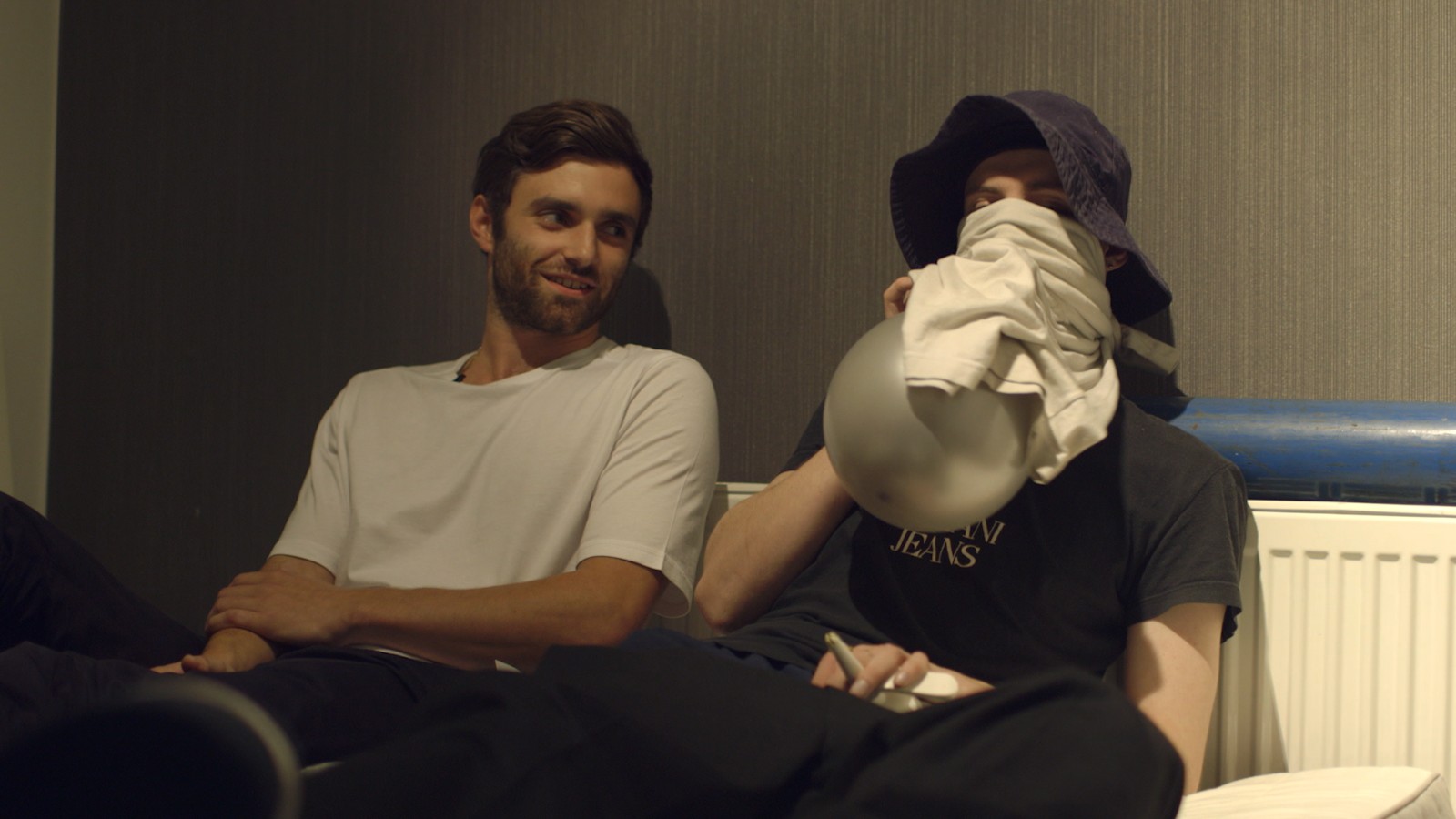People inhaling laughing gas outside the Houses of Parliament during a protest against the Psychoactive Substances Bill in 2015. Photo: Jack Taylor/AFP via Getty Images
Nitrous oxide, the second most popular illicit drug among young people in Britain after cannabis, should be banned because it creates a mess in the streets, according to UK authorities.Sold in small, bullet-shaped silver canisters and often inhaled using balloons, nitrous oxide, also called “laughing gas”, gives users a brief feeling of euphoria. Currently legal to possess but illegal to supply under the Psychoactive Substances Act 2016, the drug is estimated to be used by more than half a million young people each year in England and Wales. Controversy around the drug, which the media likes to call “hippy crack”, has centred around the fact users litter the streets with spent canisters, not because of its danger to people’s health – although police and the media have often exaggerated this. Calling for a fresh review by government drug experts into the dangers of nitrous oxide – six years after the last time they assessed the drug and recommended it should not be banned because it was not sufficiently dangerous – UK Home Secretary Priti Patel said she was ready to “take tough action” on the use and sale of nitrous oxide. The Home Office said nitrous oxide brings “misery to communities” because of the mess it causes to neighbourhood streets and due its ability to “cause serious long term effects such as vitamin B12 deficiency and anaemia”. Yet many drug experts think the dangers of nitrous oxide have been overblown and that the review is a gimmick aimed at appearing to be tough on drugs. “The risks to health for the vast majority of nitrous oxide users is very low,” said Harry Sumnall, professor of substance use at Liverpool John Moores University. “So it’s difficult to understand why the Home Secretary has now asked the Advisory Council on the Misuse of Drugs to review this drug again.” He said that since the last time the ACMD assessed the drug in 2015 no new evidence has emerged about greater severity or extent of harm of using nitrous oxide.”The timing of Patel’s announcement could be related to recent public statements about the government getting tough on recreational drug use,” suggested Sumnall. “Like powder cocaine, nitrous oxide presents, literally in this case, a highly visible target, and understandably many people are fed up with canister littering and what might be perceived as anti-social behaviour.” Sumnall said clinical case reports suggested those most at risk from psychiatric complications or neurological damage were extreme users inhaling dozens canisters every day over several months. “One case report described an individual who consumed 750 cartridges a day. Typical use patterns, however, are much lower; a few use occasions per year, often spaced weeks or months apart,” said Sumnall.Despite the drug’s growing popularity among young people, with nearly one in ten 16-24 year olds using the drug each year, the number of deaths related to its use have remained relatively low. Between 2001 and 2016 there were 36 deaths related to nitrous oxide in England and Wales, with most of them linked to extreme cases of asphyxiation rather than recreational use. For comparison, during this time there were 13,500 deaths relating to heroin. Drug charity Release said it was worried a ban on the drug would criminalise thousands of otherwise law-abiding young people, impacting their chances of employment and travel. Some dealers specialise in delivering batches of the canisters diverted from legal supplies to house parties by car. The drug has many legitimate uses, in medicine as the “gas and air” given to women in childbirth, and in the catering industry where it is used as an aerosol spray propellant within aerosol whipped cream canisters.Sumnall said the most effective policy would be to target supply rather than users of the drug, which the government has failed to do. “The number of prosecutions for supply has fallen. Legal loopholes mean it is easy to buy nitrous oxide. Focusing on closing these loopholes would seem to me to be a more targeted means of addressing use than criminalisation of possession, which would have limited impact on already low levels of harm, and dilute already stretched police resources.”
The Home Office said nitrous oxide brings “misery to communities” because of the mess it causes to neighbourhood streets and due its ability to “cause serious long term effects such as vitamin B12 deficiency and anaemia”. Yet many drug experts think the dangers of nitrous oxide have been overblown and that the review is a gimmick aimed at appearing to be tough on drugs. “The risks to health for the vast majority of nitrous oxide users is very low,” said Harry Sumnall, professor of substance use at Liverpool John Moores University. “So it’s difficult to understand why the Home Secretary has now asked the Advisory Council on the Misuse of Drugs to review this drug again.” He said that since the last time the ACMD assessed the drug in 2015 no new evidence has emerged about greater severity or extent of harm of using nitrous oxide.”The timing of Patel’s announcement could be related to recent public statements about the government getting tough on recreational drug use,” suggested Sumnall. “Like powder cocaine, nitrous oxide presents, literally in this case, a highly visible target, and understandably many people are fed up with canister littering and what might be perceived as anti-social behaviour.” Sumnall said clinical case reports suggested those most at risk from psychiatric complications or neurological damage were extreme users inhaling dozens canisters every day over several months. “One case report described an individual who consumed 750 cartridges a day. Typical use patterns, however, are much lower; a few use occasions per year, often spaced weeks or months apart,” said Sumnall.Despite the drug’s growing popularity among young people, with nearly one in ten 16-24 year olds using the drug each year, the number of deaths related to its use have remained relatively low. Between 2001 and 2016 there were 36 deaths related to nitrous oxide in England and Wales, with most of them linked to extreme cases of asphyxiation rather than recreational use. For comparison, during this time there were 13,500 deaths relating to heroin. Drug charity Release said it was worried a ban on the drug would criminalise thousands of otherwise law-abiding young people, impacting their chances of employment and travel. Some dealers specialise in delivering batches of the canisters diverted from legal supplies to house parties by car. The drug has many legitimate uses, in medicine as the “gas and air” given to women in childbirth, and in the catering industry where it is used as an aerosol spray propellant within aerosol whipped cream canisters.Sumnall said the most effective policy would be to target supply rather than users of the drug, which the government has failed to do. “The number of prosecutions for supply has fallen. Legal loopholes mean it is easy to buy nitrous oxide. Focusing on closing these loopholes would seem to me to be a more targeted means of addressing use than criminalisation of possession, which would have limited impact on already low levels of harm, and dilute already stretched police resources.”
Advertisement

Advertisement
Advertisement
